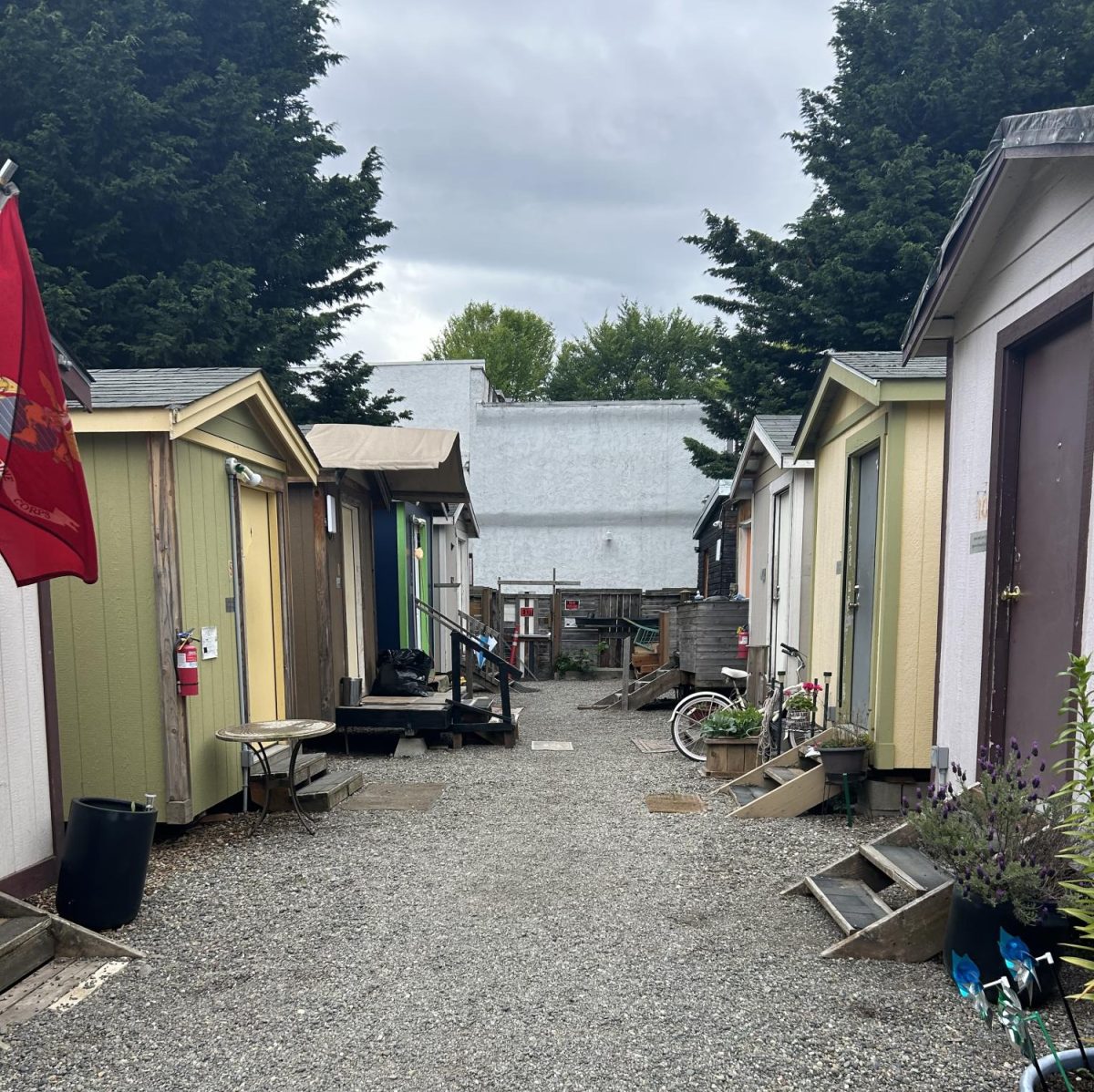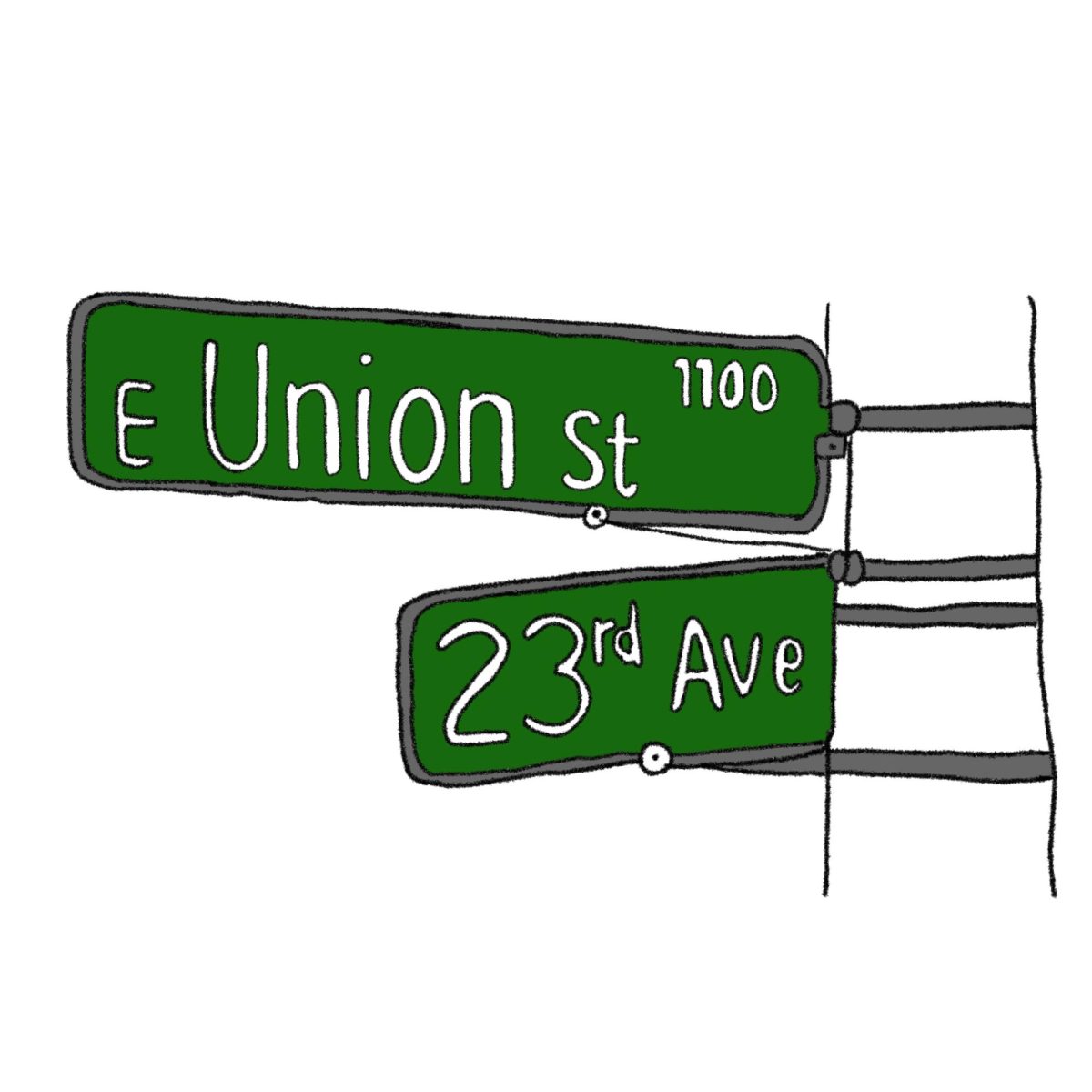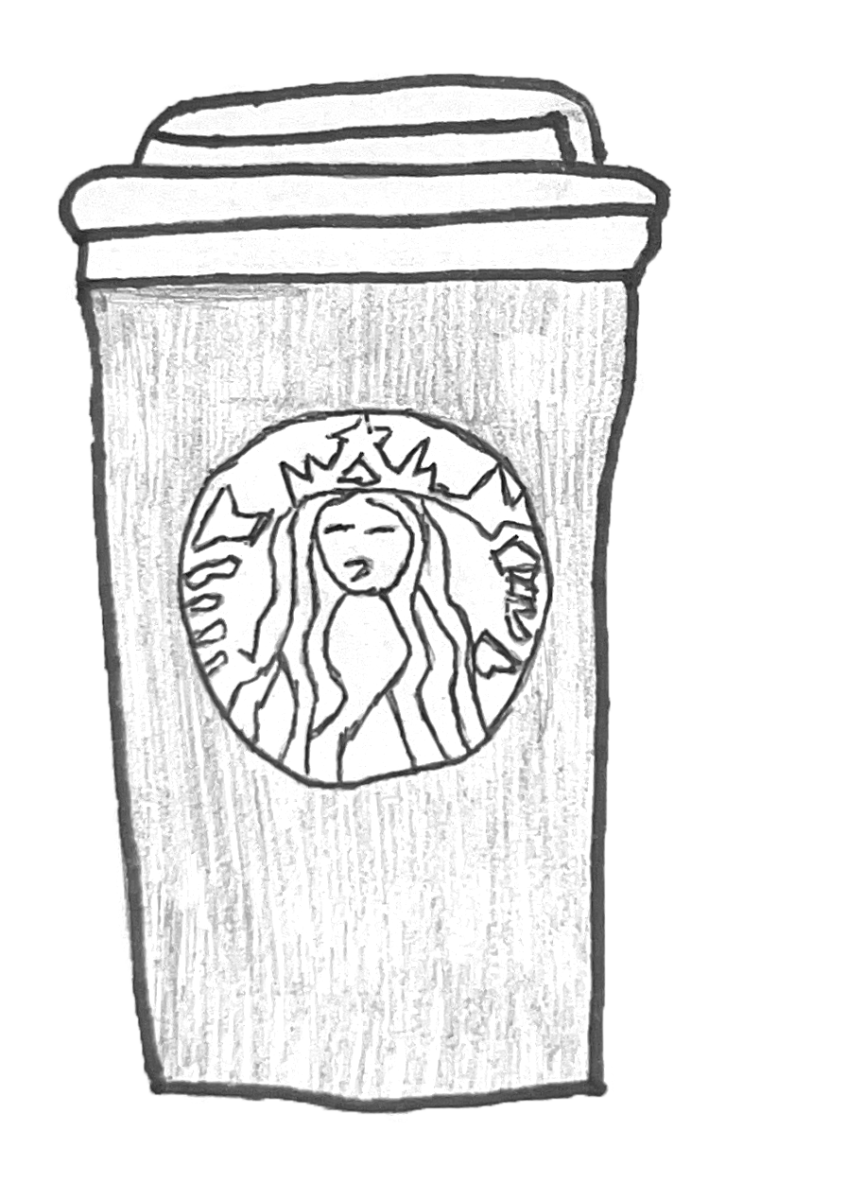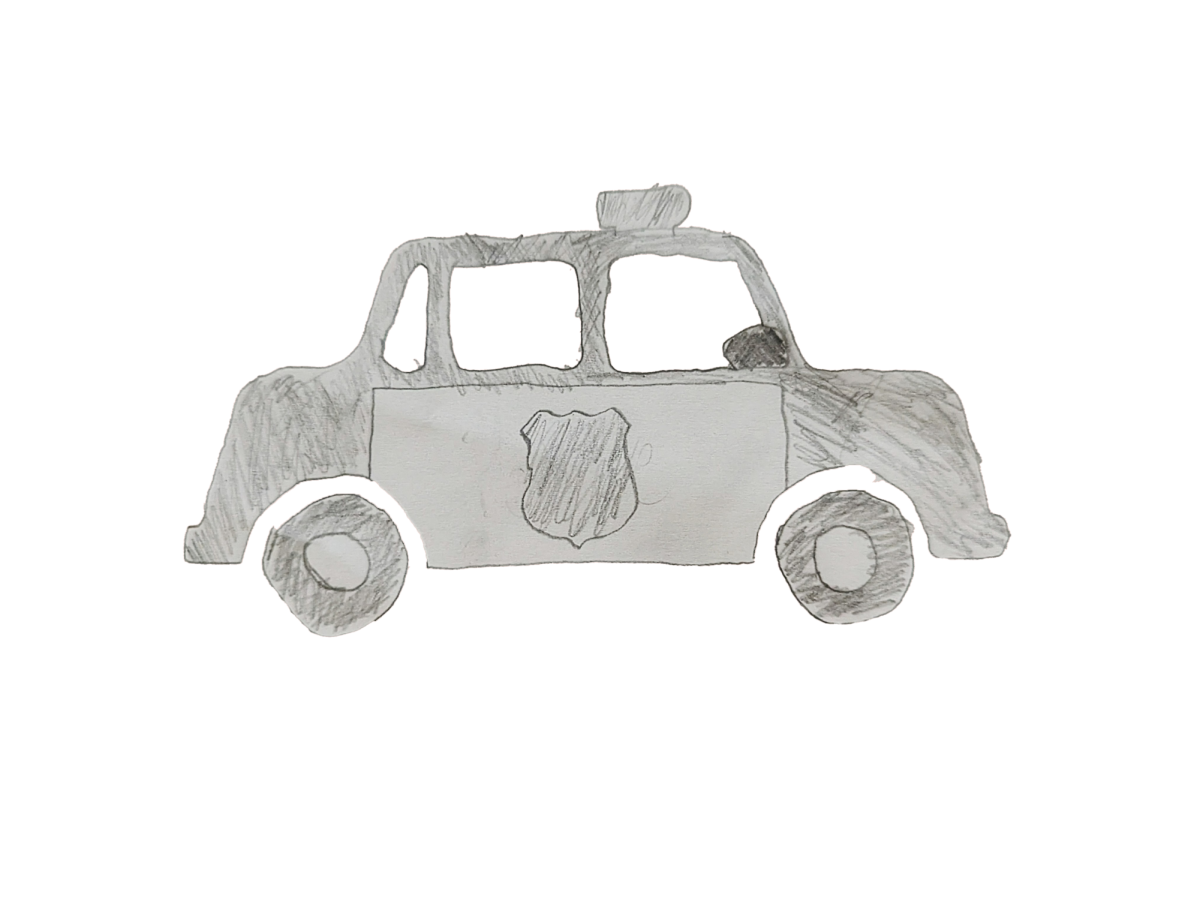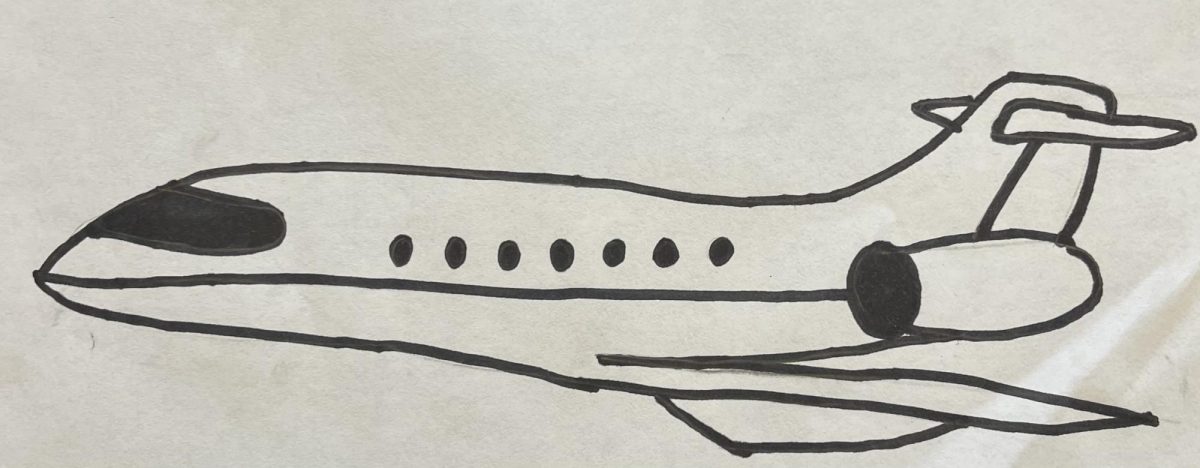On 21st Avenue between East Columbia St and East Marion Street lies the Nickelsville Tiny House village. Only five blocks from Garfield, the village is made up of 16 units on a 10,000-square-foot piece of land and is home to some of Seattle’s homeless population.
Nickelsville runs as a non-profit and was founded in 2008. Ironically, it is named after the mayor at the time, Greg Nickels, who routinely swept homeless encampments. The organization started as a group of pink tents in the University District, and since, pink has remained their color. Over the years, Nickelsville has grown to have two locations for their villages. One is in Northlake, and the other, in the Central District, was formed in 2014. Nickelsville’s main goal is to help people get off the streets and use the tiny houses as stepping stones to more permanent housing.
Self-named “Nickelodeons” run their villages with a unique style of democratic government. Every Thursday, the residents gather for a community meeting to discuss village business. Rules for the villages include no possession of alcohol or drugs, no violent and aggressive behavior, and at least one “participation credit” per week. Participation credits are activities residents can do that support Nickelsville, such as attending a city council meeting and advocating for the village. All adult residents at Nickelsville must also switch scheduled shifts at the security office where visitors are welcomed. At the Central District location, the security office is visible from the street while the 16 tiny houses lay behind it. The village is in the process of renovating its office to make it more eco-friendly.
58-year-old Elisha Burton has lived in the Central District village for almost two years. Burton is very involved in the politics surrounding Nickelsville and wants to give back to the organization that improved her life by advocating for the community.
The process to live in Nickelsville is on a first come first serve basis. “There’s probably at least 60 people, if not more, waiting to come into the village because there just isn’t any place for anyone to go,” Burton said. If not for Nickelsville, Burton said she would “probably still be living in a tent outside.”
Nickelsville isn’t the only tiny house village in the Central District. Just off the corner of 23rd and Cherry Street is a village run by the Low Income Housing Institute (LIHI). LIHI has a large number of tiny house villages all around the greater Seattle area. The main difference between LIHI and Nickelsville, beyond the sizes of the organizations, is that LIHI allows drugs and alcohol on its premises. Some Nickelsville residents come straight from rehab programs, and choose Nickelsville for its lack of substance use.
Their villages run off of funding from King County Regional Homeless Authority and can keep the village functioning on around $1000/month. The village also receives donations from faith groups, neighbors, and anyone else who wants to help. They can always use things like shampoo, soap, conditioner, dog food, and any other essentials, which can be donated at the security office on 21st Avenue. The neighborhood and Nickelsville support each other in a mutual agreement. Nickelsville has a program called “Litterbusters” where residents will walk around the neighborhood and pick up trash. In reference to their mutually beneficial relationship with the community, Burton said, “There’s quite a few neighbors where they have come together and offered to cook us meals or bring us hot meals… that has always been extremely welcoming.”
In 2024, Nickelsville hopes to grow its public image, expand the number of villages they have, and to build political power in the area. A third village is about to begin construction at Rainier Ave and Orchard St near the Othello light rail station. The village will be built in conjunction with Sawhorse Revolution which is an organization high school students can volunteer for.
Burton’s advice for the next generation is to spread as much information as you can about the homelessness crisis. “If you get just an inkling of understanding, then you’re OK right now,” she said. People call us a disease, but homelessness is not a disease. It’s a pandemic, just like COVID was.” With homelessness on the rise, organizations like Nickelsville and people like Elisha Burton are more important than ever. “Nickelsville is actually trying to end homelessness with tiny houses, and if we can, that’s amazing. If we can save one person, then we’ve done our job.”



